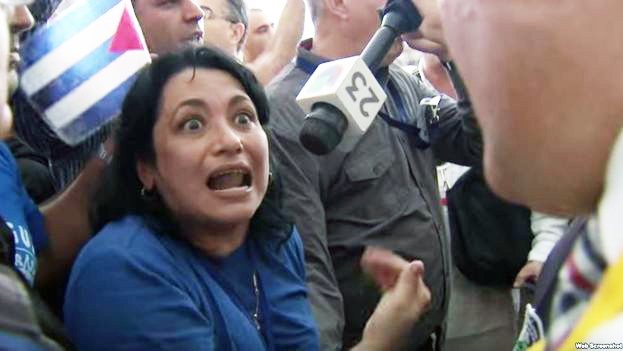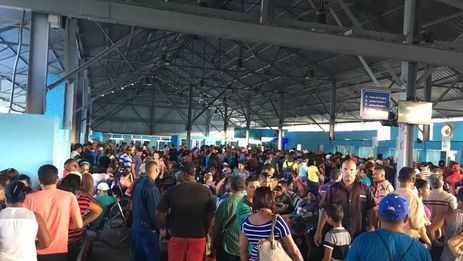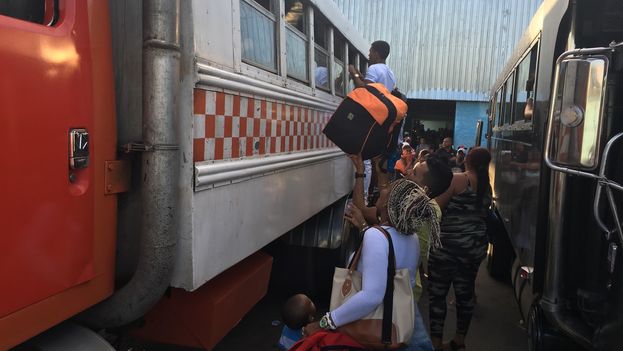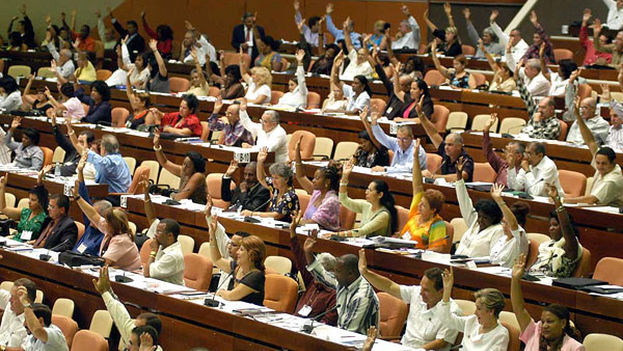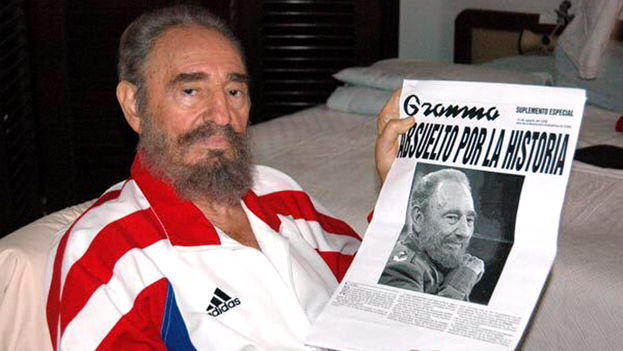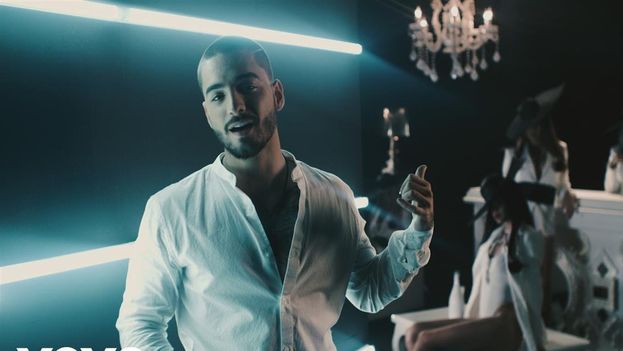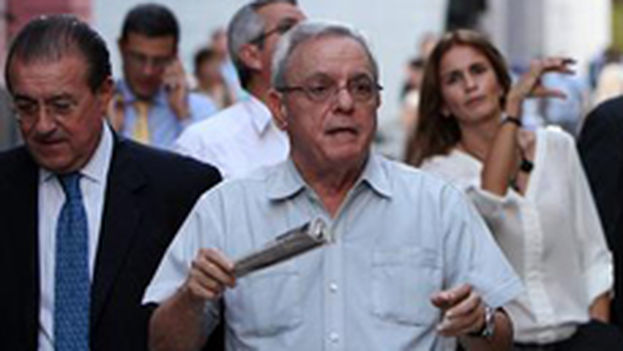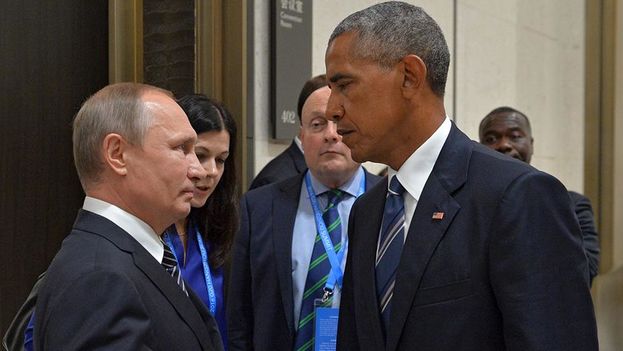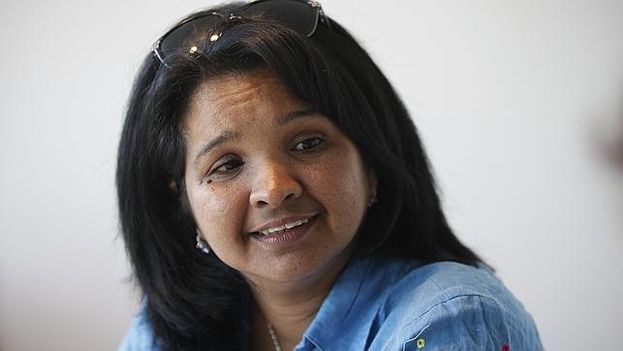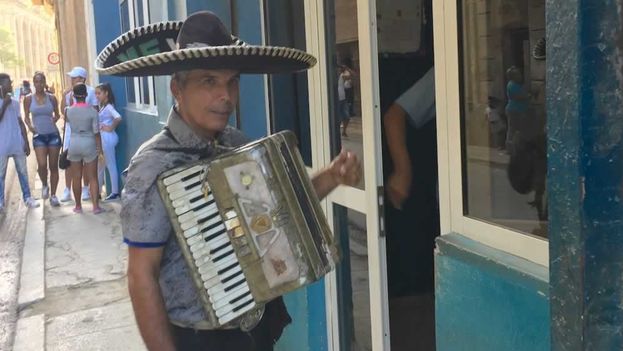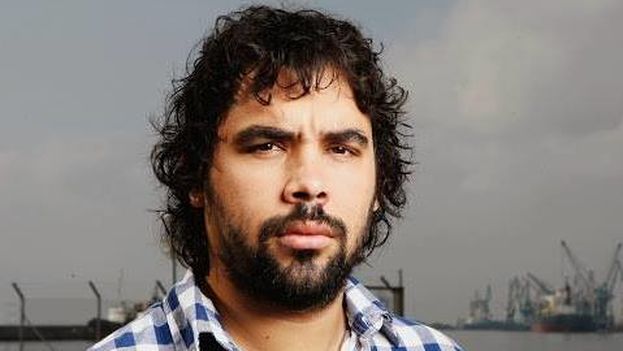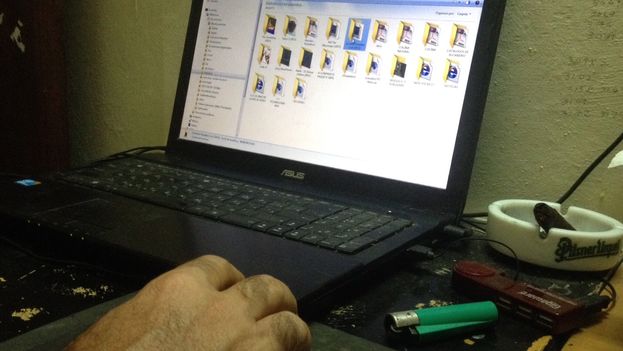
![]() 14ymedio, Zunilda Mata, Havana, 29 December 2016 — The long-awaited installation of an internet connection area on Havana’s Malecon has taken its first step. The opening of the Hola Ola Technology Park last weekend was welcomed with great enthusiasm by the state media that described the infrastructure as “the architecture of high technology.”
14ymedio, Zunilda Mata, Havana, 29 December 2016 — The long-awaited installation of an internet connection area on Havana’s Malecon has taken its first step. The opening of the Hola Ola Technology Park last weekend was welcomed with great enthusiasm by the state media that described the infrastructure as “the architecture of high technology.”
The center, managed by the Youth Computer and Electronics Club (JCCE), has two rooms, one of them with 15 computers and 32-inch TVs for playing computer games, and another with 15 more machines and electronic games, among them several simulators, as announced by the provincial director of the capital’s Youth Club, Brigida Baeza Bravo. In practice, a visit to the center is enough to confirm that there are about 20 computers that lack access to the internet. continue reading
It is clear that the Technology Park was opened in haste and its first breakdowns are already visible. Tuesday, the simulators for flying, driving and shooting, installed by the Ministry of the Armed Forces (Minfar), were having software problems and were unusable, pending the necessary fixes.
The end-of-year school holidays have stimulated people’s interest in bringing their children to Hola Ola (Hello Wave) to better fill their time. One employee tried to give them hope, this Tuesday, in the face of the mishap that caused the breakdown. “The machines will be repaired very soon, but the FAR (Revolutionary Armed Forces) will have to do it,” she explained.
The explanation did not seem to improve the mood of the frustrated visitors who demanded their time in at the controls or with the toy gun and, to ease the situation, the employee reminded them of the air conditioned room with video games. The line began to extend beyond the compound, where the use of a computer costs two Cuban pesos (CUP) an hour (about 8 cents US).
One mother with two small children waited her turn in the cafeteria. “No one can eat this croquette, it’s dry and they didn’t even use breadcrumbs to make it go down better,” the woman complained, having paid two Cuban pesos for the product.
Another of the services announced in the official press by Brigida Baeza is the rental of tablets, who use was intended to be free during the opening days until a reasonable fee was approved. But the option, for now, is not available to the public.
But the biggest attraction of the site, for the users of Hola Ola, is the wifi access area installed around the perimeter. The network, managed by the Telecommunications Company of Cuba (Etecsa), is also not working to its full capacity, because the antennas are not operational in the back, where the barbecue is located.
There is also no place on site to buy the Nauta cards needed to connect to the internet, which also limits the experience of would-be net surfers, a problem that will be solved “very soon,” according to several employees consulted by this newspaper.
“It’s the wifi area closest to me,” said Amarilys, a Havanan of 34 who lives in the Cayo Hueso neighborhood, although she complains that “the price to connect is still very high,” despite Etecsa’s recent drop from 2 Cuban Convertible pesos (CUC) an hour (roughly $2 US) to 1.50 CUC.
The infrastructure problems affecting Hola Ola also affected its bathrooms this Tuesday, which were flooded by a water leak. Nevertheless, the desire of many citizens to connect to the internet is huge and the web surfers didn’t let any of these inconveniences ruin the kilobyte party.
Cuba is one of the countries with the least internet connectivity in the world. In the last couple of years about 1,100 internet connection points have been enabled on the island, both in navigation rooms with computers provided, and in outdoor wifi zones, but many websites critical of the government remain censored and cannot be accessed from the island, the connection speed is low, and the service suffers from frequent outages.

